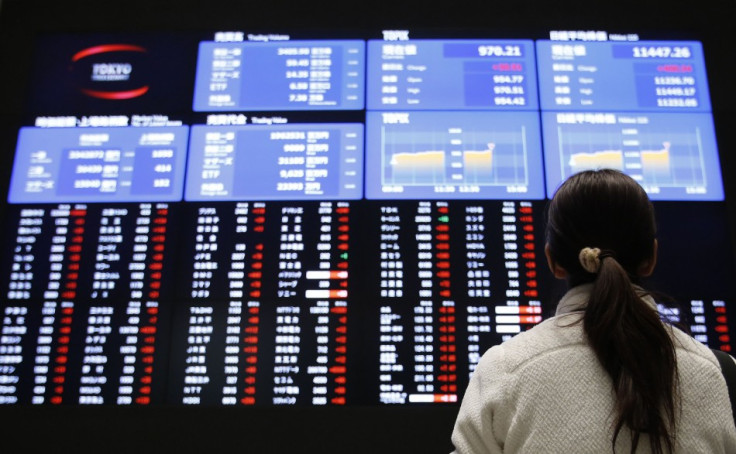Asian Markets Weekly Roundup: Stocks Weak but Japan Surges

Most Asian markets retreated this week as property control fears dampened Chinese market sentiments, although Japanese stocks surged on stimulus hopes.
The benchmark Nikkei average index advanced 2.3 percent this week. South Korea's KOSPI fell 1 percent while Australia's S&P/ASX 200 eased 0.1 percent.
Hong Kong's Hang Seng retreated 2.4 percent while China's Shanghai Composite Index fell 1.7 percent.
Japanese parliament's upper and lower houses approved the former Asian Development Bank head Haruhiko Kuroda as the next Bank of Japan governor, with Kikuo Iwata and Hiroshi Nakaso as his deputies.
All eyes are now on the central bank's next policy meet scheduled for early next month. Analysts speculate that Kuroda, who is a vocal advocate of aggressive monetary easing measures, could come up with measures such as bringing forward the open ended asset buying plan set for next year.
Meanwhile, the Japanese government has upgraded its domestic economic assessment for the third straight month in March. In its report, the Cabinet Office said that conditions have begun to improve, although there are concerns in some areas.
The yen extended its losses against the dollar during the week, climbing over the 96 mark, but the greenback eased back towards the week's end to trade at about 95 yen.
Chinese markets sentiments remained weak on continued concerns that the government will step up its efforts to control the rising property prices. Local media reports this week suggested that authorities in Shenzhen had already imposed price restrictions on developers.
Concerns on the European economy continued to plague Asian investors. Official data showed that eurozone Industrial output fell more than expected in January, prompting fears that a recovery in the region may be further delayed.
This came barely a week after the European Central Bank (ECB) left its interest rate unchanged at a policy meet, suggesting that a gradual recovery can be expected in the second half of the year.
Across the Atlantic things were bit more positive as US economic indicators released during the week underscored recovery optimism. The monthly employment data released in the previous week had set the stage for a host of other improved indicators. This week's jobless claims data further added to hopes, as it fell to a record low level.
US retail sales figures showed that Americans spent the most in the five months in February, indicating improved consumer confidence. Inflation too picked up during the month according to official reports, supported by a surge in fuel prices.
The Week Ahead
The United States Federal Reserve is set to meet for a policy review in the coming week. Investors will be keeping a close watch to know the central bank's decision on the monthly asset purchase programme, although analysts do not expect any major changes at the moment.
Eurozone purchasing managers index (PMI) data is set for release, along with German Ifo and ZEW surveys. The UK's Budget is also set for the coming week, which is expected to be a major point of focus considering the significant pressure the government is facing on the weak economic conditions.
Japanese trade data is set for release, while in China, HSBC's preliminary Manufacturing PMI data is expected to hog the limelight.
© Copyright IBTimes 2024. All rights reserved.





